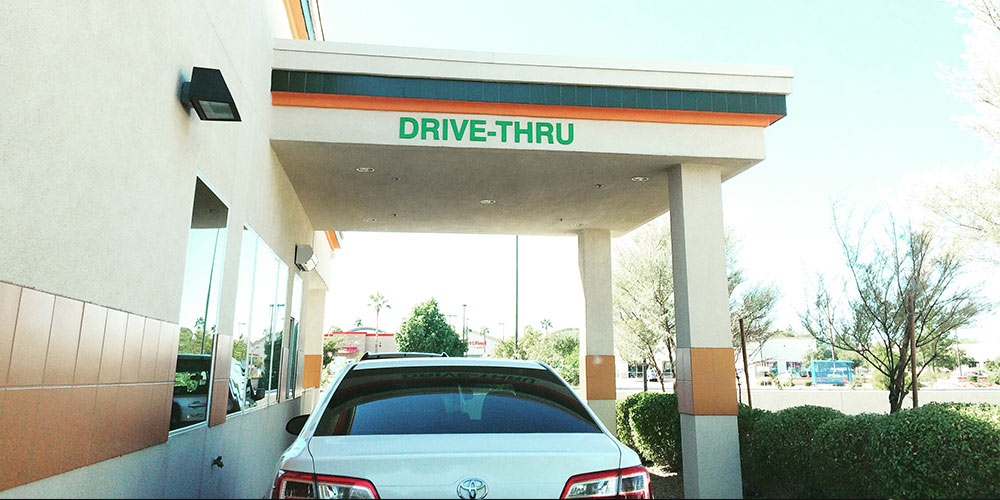“I’m glad you like being on time,” my dad said, as I rushed down the stairs as a 12-year-old. He stood by the door, along with my mom and sister, jackets zipped. I cocked my head to the side, much like our dog when she didn’t understand. I couldn’t tell if my dad had a twinkle in his eye or a flicker of frustration hidden behind his glasses. “Get your shoes on,” he continued. “We’ll meet you in the car.” Everyone filed out as I scurried around, looking for my favorite brown loafers. Was my dad being sarcastic? Because I do like being on time. But am I on time? I checked my watch. Not late yet. I heard the garage door going up and then a honk. Maybe I was late. Was my dad angry with me? I pulled on my loafers, grabbed my coat, and hurried out the door, scratching my head.
Are you sarcastic? Even though it’s a form of humor, sarcasm can be biting and hurtful. And because sarcasm uses irony, it can confuse kids and won’t do much for child development. Here are 5 signs you’re using sarcasm in a way that isn’t helpful for your child.
1. After saying something, your child looks uncertain.
I pushed open my daughter’s door. “I love listening to the Star Wars soundtrack all day long!” I said. She’d been playing it for hours and I wanted it off. But instead of being direct, I used sarcasm and as a result, she furrowed her eyebrows. Was I serious? Or did I hate her music?
According to licensed social worker, author, and educator Signe Whitson, “When adults use sarcasm to say things they don’t mean and mean things that they don’t literally say, they lose an opportunity to communicate effectively and to build positive relationships with kids.” It’s better to be direct with kids so they don’t have to sort through any passive-aggressive language or feel criticized.
2. Your child goes silent, looks frustrated, or sighs.
As our family wrapped up dinner, we discussed what movie we might watch. The kids voted for another Marvel movie, and I rolled my eyes. “Oh, I can’t wait to spend my Friday night with the Avengers! Again!”
Whitson says sarcasm is “sugarcoated hostility.” It can hurt feelings, and words uttered in a humorous moment can cause lasting damage to self-esteem. And she’s right. I thought I was funny with my comment, but my kids didn’t. As moms, we should be careful what we say to kids and how we say it because sarcastic remarks can leave kids feeling like they don’t measure up and can negatively affect their confidence.
3. You find yourself telling your kids “it’s just a joke,” to “laugh at yourself,” or not to be “so sensitive.”
“Can you swing harder next time?” Danny’s mom said from the sidelines, laughing. Danny had swung so hard he’d tottered. Then he fell into the dust in the batter’s box. The poor kid had tried, but completely missed the ball. I sensed tears rising in his eyes as he pulled himself back up to his feet. When he retreated to the bench, hanging his head, his mom said, “Aww, come on. You gotta laugh at yourself. I’m just kidding.”
It’s not a bad idea to teach kids to laugh at themselves. But it can be especially painful if the sarcasm’s coming from a parent. Sarcasm can simply feel like meanness. As Paul Coughlin from Focus on the Family Canada writes, there’s a “thin line between good-natured…teasing and camouflaged mockery.” I’m sure Danny’s mom didn’t intend to hurt him, but sarcasm can sting. Sarcasm can also lead to misunderstandings and social exclusion for kids if they don’t understand a sarcastic remark.
4. Your child’s embarrassed or gets upset.
What if your child suggests ice cream when you ask for dinner ideas, and you say, “That sounds reeeeeeeally healthy!” How does she respond? Or your child notices that you’ve put your shirt on inside-out and you say, “You’re soooo clever.” If your tone’s edgy and your child looks discouraged after your remark, she’s not getting your humor.
Whitson says, “While humor is a glue that binds many families together, sarcasm can be the wit that wounds.” Think twice before wielding your humor on your kids. It might make them feel stupid because they don’t understand your meaning.
5. Your child’s behavior doesn’t change.
Sometimes we want our kids to do something differently, but they don’t pick up on the sarcasm. “Did you leave the other half of your skirt upstairs?” you might ask. If she responds, “No?” or changes clothes only to wear the same short skirt the next day, she hasn’t gotten the message. So she doesn’t feel like she’s constantly messing up in your eyes, be clear and direct instead of teasing or sarcastic.
Another Focus on the Family article cautions that the risk of using sarcasm with teens is especially high. Your teen “probably gets plenty of barbs and arrows at school or on the playing field. Home should be a refuge from that kind of treatment—a safe haven from hurt.” Instead of caustic sarcasm, we should be sensitive with words that build our kids up. They should know we love them no matter what.
Instead of caustic sarcasm, we should be sensitive with words that build our kids up. Click To TweetAs your child has grown and developed, have you noticed yourself using more sarcasm?










